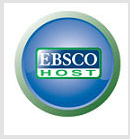Biology 11 Research and Citation Skills
For your Current Events in Science, check out Science Daily.
How to approach research for your formal Biology 11 Lab Reports:
1. Citation of Resources
- At Royal Bay (and most post secondary institutes) you will be expected to cite your resources using APA.
What is APA?
- The last page of your research paper should be titled “References” which lists all references you paraphrased, cited, and copied images from.
- Click HERE for additional tools to help with APA.
2. Research Data Bases
Gale Canada In Context and Science in Context are great places to start. These databases will provide you with references, biographies, academic journals, images, news articles and magazine articles all related to your search topic. Bonus: It will create an APA citation for you!
 EBSCOhost is a powerful online reference system accessible via the Internet. It offers a variety of proprietary full text databases and popular databases from leading information providers. You must select which databases you want it to search.
EBSCOhost is a powerful online reference system accessible via the Internet. It offers a variety of proprietary full text databases and popular databases from leading information providers. You must select which databases you want it to search.
When searching data bases Boolean Operators can help you to narrow in on the information you are seeking:
AND = will retrieve search results containing both keywords
OR =will retrieve search results containing either the keywords
NOT =will retrieve search results containing the first key term and eliminate all results containing the second key term.
“Phrases” = use the quotation marks to search desired phrases.
3. Research Using the Open Net
To support you with this consider the following points from the information literacy guru, Mike Caulfield:
- Check for previous work: Look around to see if someone else has already fact-checked the claim or provided a synthesis of research.
- Go upstream to the source: Go “upstream” to the source of the claim. Most web content is not original. Get to the original source to understand the trustworthiness of the information.
- you can use Wikipedia for this, believe it or not!
- Read laterally: Read laterally.[1] Once you get to the source of a claim, read what other people say about the source (publication, author, etc.). The truth is in the network.
- Google the author, see what credentials they have to be speaking on the topic.
- You know you are engaging in lateral search when you have multiple tabs open!
References:
Caulfield, M. (2017, January 08). Four Moves. Retrieved from https://webliteracy.pressbooks.com/chapter/four-strategies/


